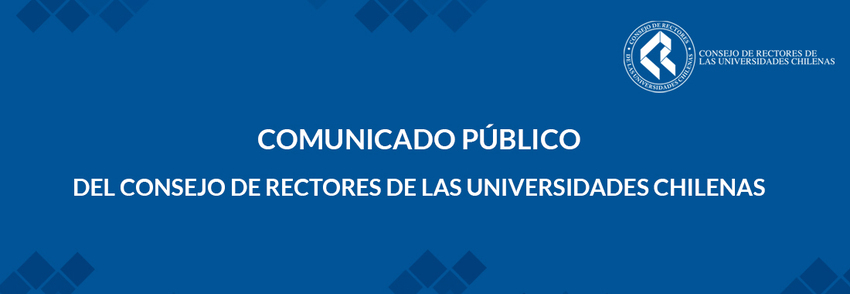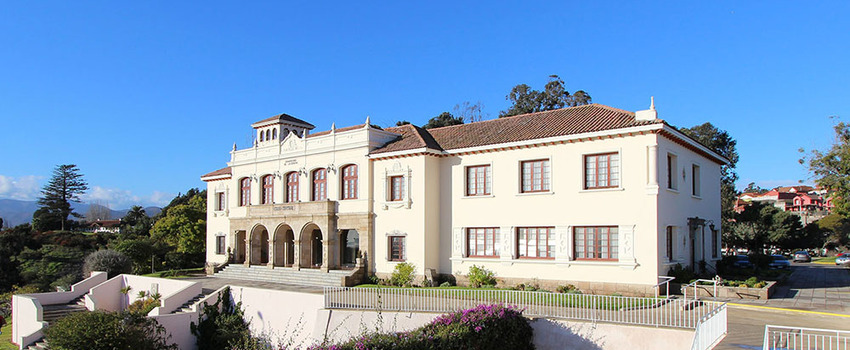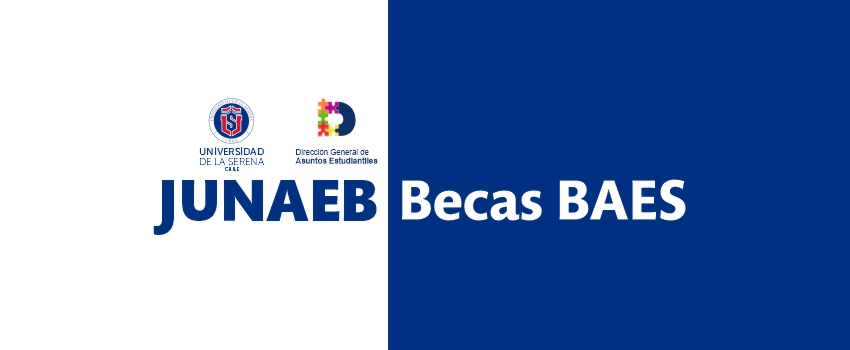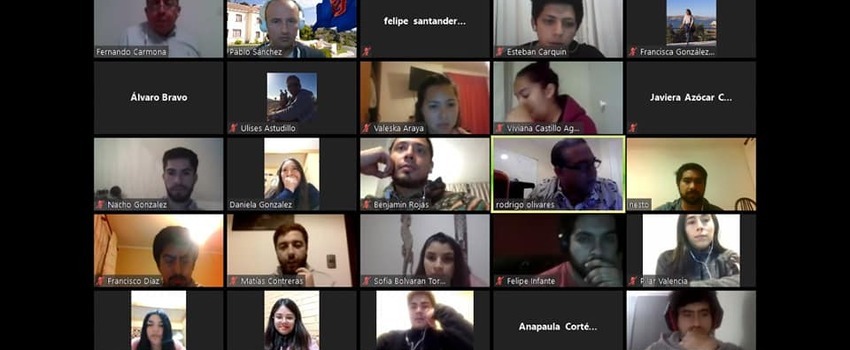
This Thursday, April 30, the new authorities of the organization were elected for the period 2020 - 2022. In addition to the executive vice president, the alternate executive vice president was elected, a position that will be assumed by the rector of the Pontifical Catholic University of Chile, Ignacio Sánchez; and also six rectors to join the Executive Committee.
“I hope to be a contribution, through the Council of Rectors, to Chilean higher education and education in general. For me this is an honor, I say it honestly,” said the rector of the University of Santiago de Chile, Juan Manuel Zolezzi, after having been unanimously elected in session No. 612 of the Council of Rectors, held remotely this Thursday April 30.
He added that “assuming this responsibility and this mandate from my rector colleagues is an honor in the sense that we are in a moment of extraordinary difficulty, of unprecedented events, not only in Chile, but in the world.”
The new executive vice president pointed out that the Council of Rectors is one of the most valuable organizations that our country has and also one of the most respected. For this reason, he said that “in these complex times we cannot fail” and highlighted that “we have been able to do extraordinary things in a very short time, and I would say that with a lot of commitment from our own institutions we are collaborating with measures related to the pandemic.” . He pointed out that “the economic and social impacts of Covid 19 are going to be much greater and that the only way to move forward is to be united.”
Regarding the guidelines for its management for the period 2020-2022, Zolezzi maintained that “we must set medium and long-term objectives that strengthen us and unite us. You have my commitment to make the best of efforts to collaborate as much as possible and bring all our universities to the best level, for which we require the participation of our own university communities.”
Meanwhile, the rector of the Pontifical Catholic University of Chile, Ignacio Sánchez, will assume the position of alternate executive vice president.
Recognition to the rector Aldo Valle
On the other hand, all the rectors and rectors valued the management of the rector Aldo Valle in his position as executive vice president during the period 2015-2020. In their interventions, the rectors thanked and praised the leadership of Rector Valle, highlighting his dedication, commitment, equanimity, his ability to generate unity in the diversity of the CRUCH, his contribution to dialogue in the public space, as well as his ability to agree on lines strategic for the benefit of higher education in the country.
Rector Valle thanked the words and maintained that “I was only part of the result, which does not occur unexpectedly, it is the result of the common effort and will that we have been able to make important changes. In this sense, I am especially grateful for the honor of trust, which is one of the greatest honors to which one can aspire.” Also, he valued the contribution of the members of the Executive Committee who accompanied him during his management, the rectors Darcy Fuenzalida, of the U. Federico Santa María; Ennio Vivaldi, from the University of Chile; Claudio Elórtegui, from the Pontifical Catholic University of Valparaíso; Patricio Sanhueza, from the Playa Ancha University of Educational Sciences; Emilio Rodríguez, from the University of Tarapacá; and Jorge Tabilo, from the U. Católica del Norte.
Finally, Valle asked for “a round of applause for the new team in the person of Rector Zolezzi who is going to take on this responsibility.”
Members of the Executive Committee
Meanwhile, the Executive Committee, whose main function is to collaborate in the execution of the agreements adopted by the CRUCH and support situations that require urgent or urgent decisions, was made up of the following rectors: Ennio Vivaldi, rector of the University of Chile and President of the Consortium of State Universities, CUECH; Diego Durán, rector of the Catholic University of Maule and President of the Network of Non-State Public Universities, G-9; Patricio Sanhueza, rector of the Playa Ancha University of Educational Sciences and President of the Group of Regional Universities, AUR; Luis Alberto Loyola, rector of the University of Antofagasta and representative of CUECH; Óscar Galindo, rector of the Universidad Austral del Chile and representative of the G-9; as well as Eduardo Silva, rector of the Alberto Hurtado University and representative of universities incorporated into CRUCH in accordance with the procedure contemplated in Art. 6 of Law 21.091 on Higher Education.
Regulations of the CRUCH management bodies
According to the “Regulations on integration, election and operation of governing bodies of the Council of Rectors” - approved in plenary session No. 611 of the CRUCH on April 7, 2020 -, it is worth mentioning that the President of the Council of Rectors is the Minister of Education, however, may delegate his powers to another member of the CRUCH or to the General Secretary.
Said regulations also establish that the Executive Committee of the Council of Rectors will be made up of the following: a) By the Executive Vice President; b) By the Alternate Executive Vice President; c) By the President of the Consortium of State Universities, CUECH; d) By the President of the Network of Non-State Public Universities, G-9; e) By the President of the Group of Regional Universities, AUR; f) By three rectors, proposed and ratified according to the following formula: one by the Consortium of State Universities, another by the Network of Non-State Public Universities and the third by the rectors incorporated into CRUCH in accordance with the procedure contemplated in Art. 6 of Law 21.091 on Higher Education.
Source: CROSS







